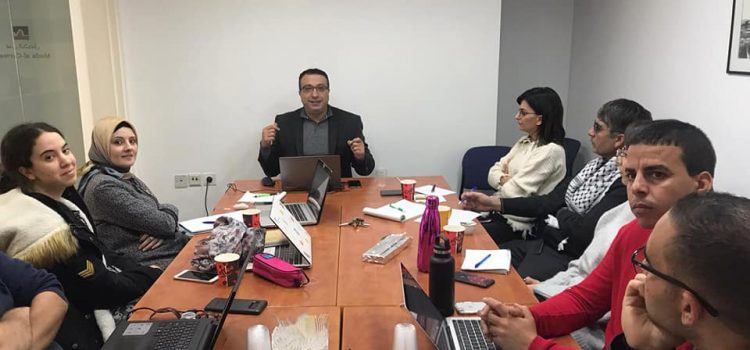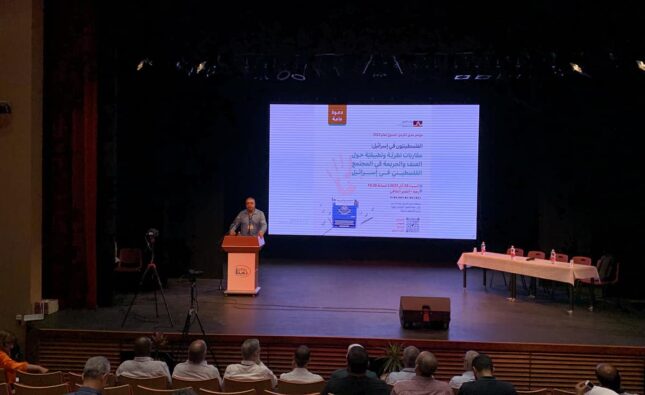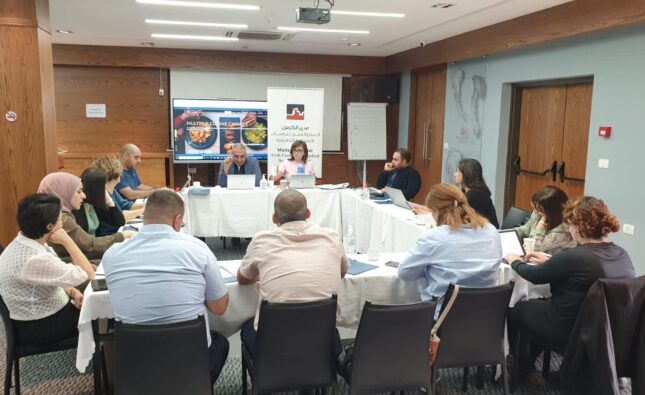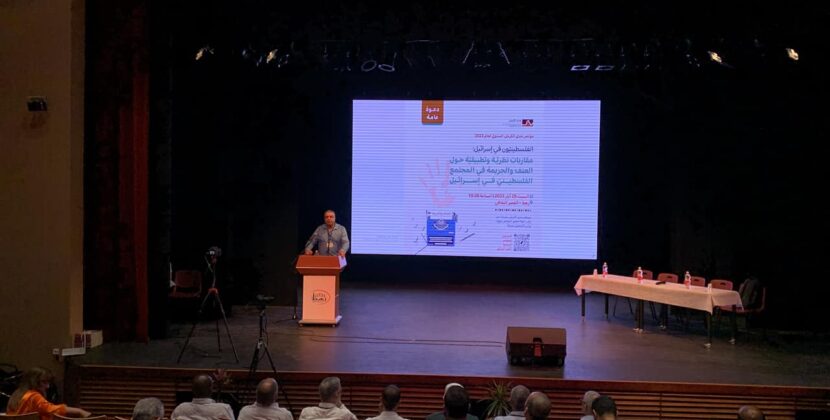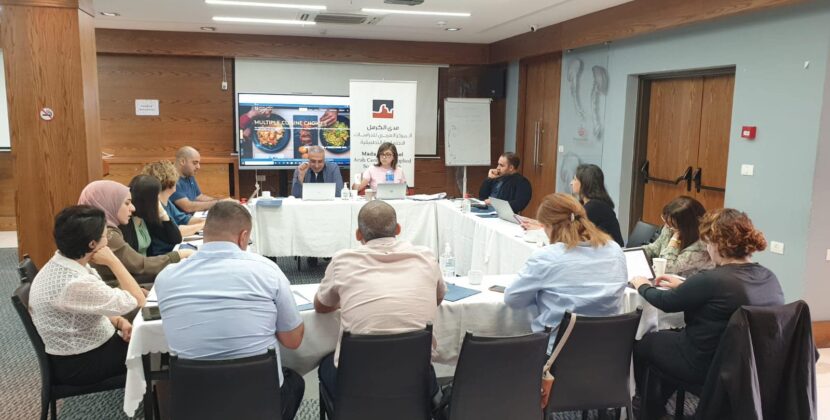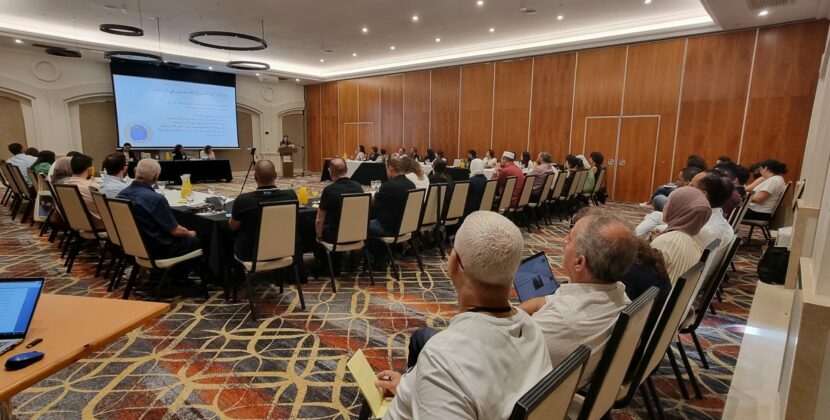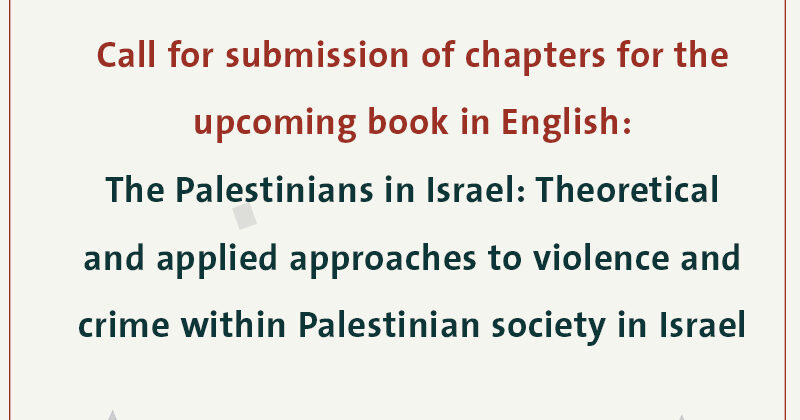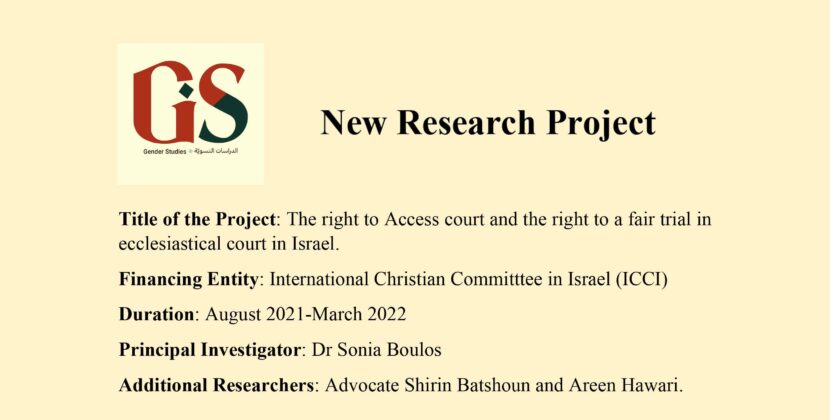Mada al Carmel- The Arab Center for Applied Social Research, has concluded the sixth seminar group of its Higher Education Student Support program, in which eleven Palestinian students from all over the country participated. The program was run and academically supervised by Dr Mohanad Mustafa, general director of Mada al Carmel, and coordinated by Dr Areen Hawari, a researcher at Mada. The support program aims to foster Palestinian PhD and Masters’ students who work in Israeli universities, and give them a space in which they can discuss their studies and research in their mother tongue. Mada seeks to provide a context in which students can express themselves and their ideas freely. Mada’s workshops and seminars make a valuable contribution to the effort of building a new generation of scholars who can counter, critique and work to reverse dominant trends in Israeli academia.
In addition to the workshops, discussion groups and debates that the students participated in, the seminar also hosted prominent Palestinian academics, giving the students a chance to become personally acquainted with them and to learn from their experiences. Students can benefit from hearing constructive feedback on their work from established Palestinian academics. Among the academics who participated were Doctor Yasmin Zahir, Doctor Sami Muhajna, Prof. Khawla Abu Baker, Prof. Amal Jamal, Doctor Ayman Aghbariyya, Prof. Mina Khoury Kasabry, and Doctor Taghrid Yahya Younis. These academics gave advice to the students on different topics, such as the process and challenges of writing PhD theses, qualitative and quantitative research methodologies, getting work published in academic journals, what comes after your doctorate, and other such topics. Guest lecturers also participated in workshops where they discussed the various stages and waypoints in the development of their careers. They also stressed the political, social and national aspects of their jobs, for example the social responsibilities that come with being a researcher, the role of the intellectual in resisting hegemonic academic approaches, and the importance of producing justice-centred scholarship.
Participants expressed to Mada just how important these spaces are, which bring together Palestinian doctoral students from both sides of the green line. This helps to build a communicative intellectual network between Palestinians living in different contexts. It also exposes participants a taste of professional academia, and exposes them in the recommendations of researchers who work in it. One participant, Loay Weted, commented on the experience, saying “the real bonus I got out of the program was meeting Palestinian academics. Before they were just names that I’d read or heard, but today their faces became familiar to me, and I got to build a personal relationship with that name. This gap between me and them suddenly closed, a gap that had been enforced by their position in academia, or them belonging to a different generation, or by the elitism that is so characteristic of the academic sphere. Today I feel as though I have become part of this academic community, that this community is ready to accept me into it, and that there is a space for me here.”
Another participant, Aisha Muslimani, a student from Jerusalem, also shared her thoughts on the program: “Interacting with Palestinian students who live in Israel, having lacked that experience in Jerusalem, especially in my studies at the Hebrew University- I was shocked by the feelings of discontinuity I had about our different experiences. The program enabled me to fill these gaps in my experience and helped to get past those feelings of discontinuity. There is no doubt, in my view, that this program is valuable and enriching.”
Mada al Carmel Center is aiming to develop and expand this project by starting up a workshop for undergraduate students as well, and is launching a questionnaire to seek advice on what the best kind of seminar would be for students starting this year. Dr Mohanad Mustafa, general director of Mada, said that “we aim with this project expansion to create a department for training critical, professional researchers ranging from the undergraduate stage all the way up to doctoral level. The work is made up of research and training workshops, which are participated in by quality Palestinian researchers and critics of all different ages. We will be launching an undergraduate seminar in social sciences, to meet with our PhD seminar group, which this year we expanded to include Masters students. All these groups will also be involved in our workshop on Zionism and settler colonialism. These efforts will help us build a department through which students can develop their research abilities, and be exposed to the experiences of Palestinian academics, all in cause of supporting well-rounded Palestinian intellectuals.”





